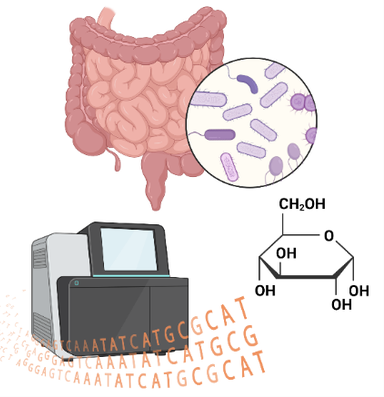Recent research from the University of Jyväskylä contrasted the gut microbiota and gut-derived metabolites of healthy controls and fatty liver patients. The findings show that some microbial metabolites are linked to liver fat content.

Image Credit: University of Jyväskylä.
The actuality that the gut microbiota is linked to a variety of diseases has fueled speculation that they can be used for diagnostic purposes. One of the emerging research areas is the examination of gut-derived metabolites produced by microbes from food.
Fatty liver disease is the most prevalent chronic liver disease in the world, particularly in obese people, and it predisposes them to cardiovascular disease. Recent research contrasted the gut microbiota and gut-derived metabolites of healthy people and people with fatty livers.
The research was performed in conjunction with the Universities of Helsinki, Eastern Finland, and Indiana, as well as the International Agency of Cancer Research (WHO).
The investigators discovered that people with fatty liver had more degradation products of the amino acids leucine and histidine as well as less testosterone in their feces.
These could be useful gut microbiota-derived biomarkers for diagnosing fatty liver disease. We are currently analyzing new data to determine whether these biomarkers could also be used to identify fatty liver patients that can be treated with personalized diet.”
Satu Pekkala, Senior Lecturer, Faculty of Sport and Health Sciences, University of Jyväskylä
The most fascinating discovery in the blood samples was that people with fatty liver had elevated levels of caffeine and its metabolites, despite the fact that both groups consumed the same amount of coffee.
Caffeine metabolism failure can be caused by decreased activity of cytochrome enzymes in the liver. Because these enzymes are essential drugs and nutrient degraders, their role should be researched further to understand the role of these enzymes and fatty liver in overall health.
More research is coming
Pekkala discovered that investigations on fecal metabolites in fatty liver disease were limited after reviewing the existing literature.
Pekkala also noticed that numerous research findings were conflicting, and only Pekkala’s recent study took the diet into account in the analyses.
Because the microbes digest the food that we eat, it cannot be known whether the metabolite differences between healthy controls and patients with fatty liver are solely due to dietary differences. So that the microbial biomarkers could be used for diagnostics, more research in larger populations is needed, and most importantly diet should be considered among other confounding factors.”
Satu Pekkala, Senior Lecturer, Faculty of Sport and Health Sciences, University of Jyväskylä
Pekkala’s research group is already conducting such research and new studies are now being planned.
Source:
Journal references:
Pekkala, S. (2023). Fecal Metagenomics and Metabolomics Identifying Microbial Signatures in Non-Alcoholic Fatty Liver Disease. International Journal of Molecular Sciences. doi.org/10.3390/ijms24054855.
Driuchina, A., et al. (2023). Identification of Gut Microbial Lysine and Histidine Degradation and CYP-Dependent Metabolites as Biomarkers of Fatty Liver Disease. MBio. doi.org/10.1128/mbio.02663-22.